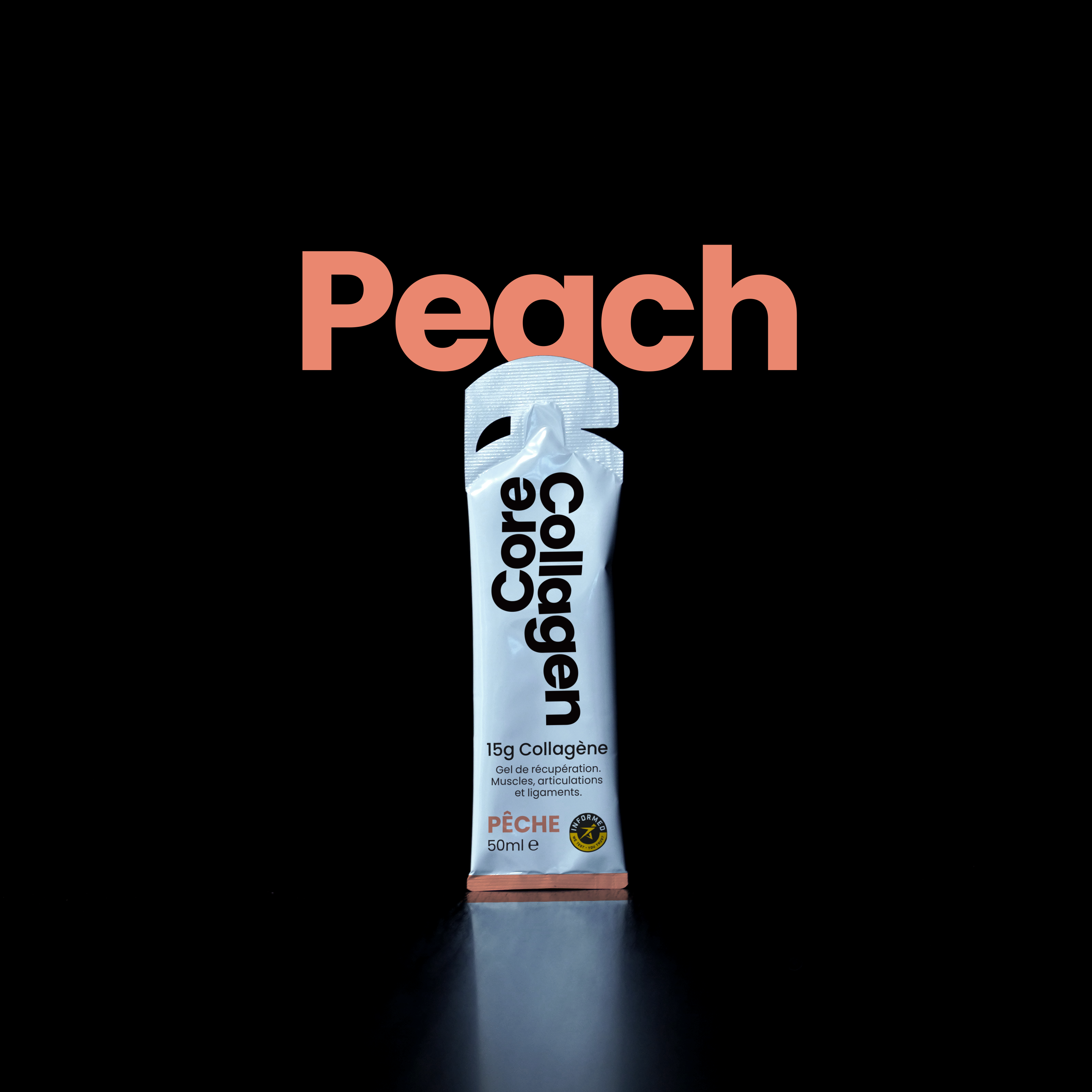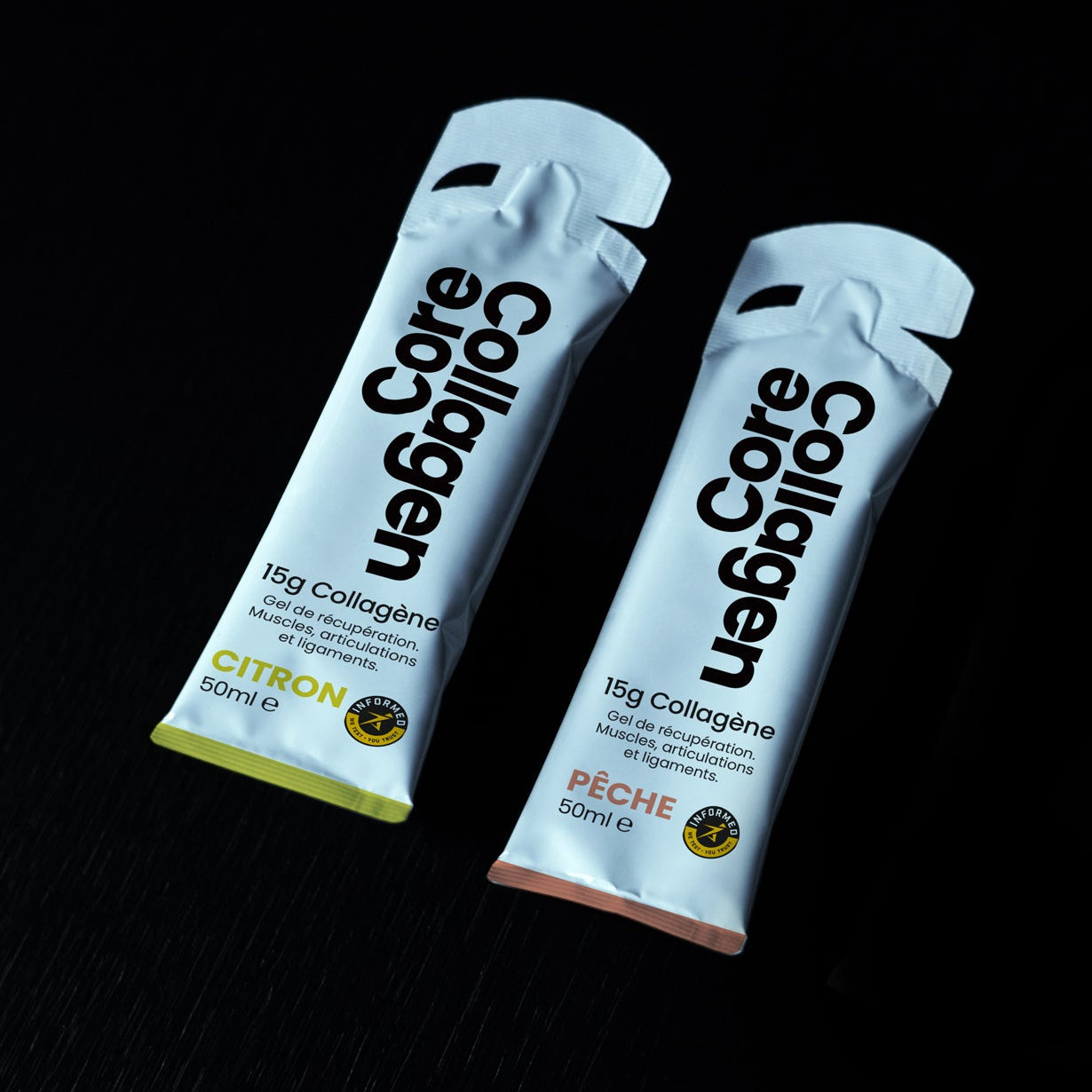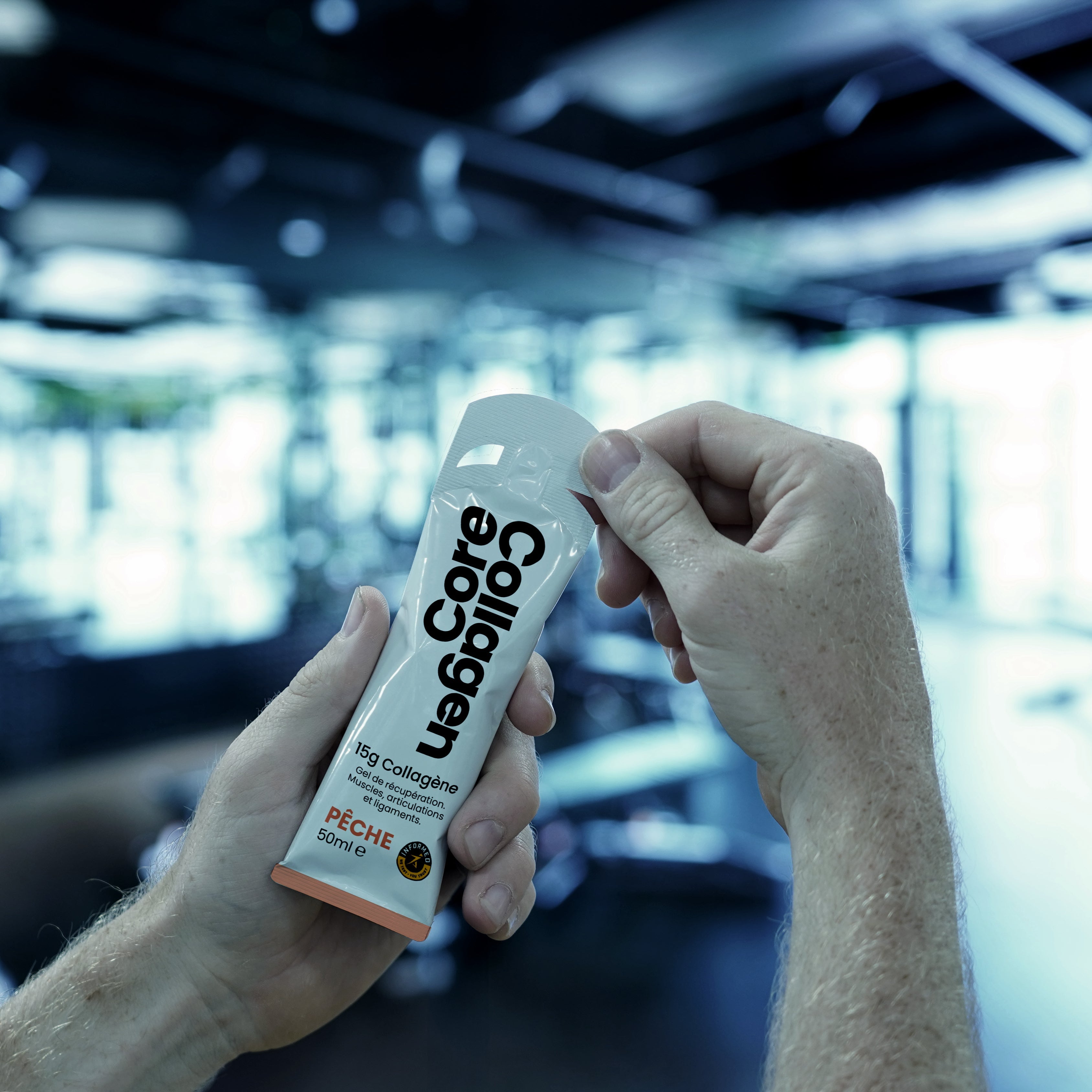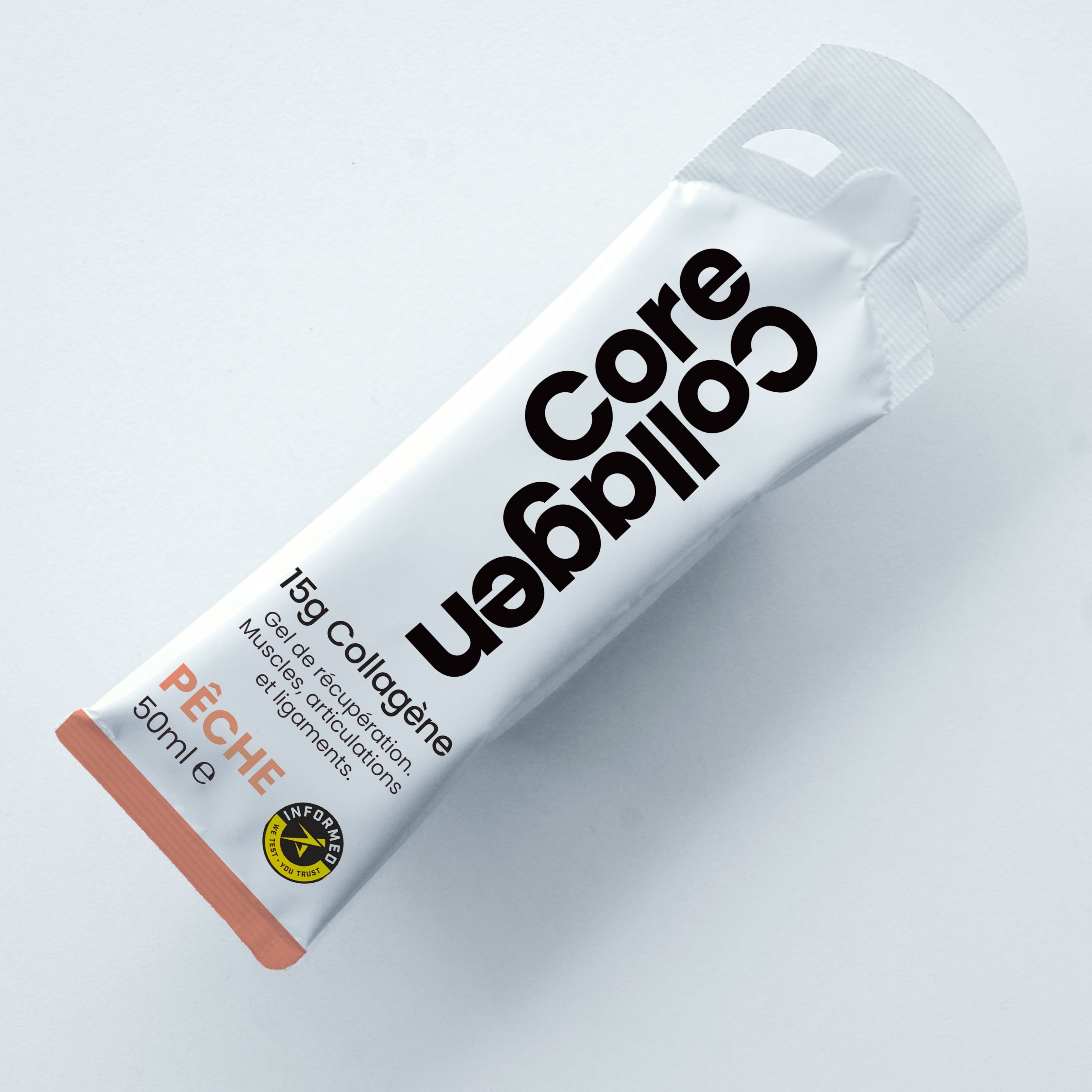Can You Reverse Collagen Loss at 40 with Core Collagen?

As we age, collagen—the structural protein that keeps our skin firm, joints healthy, and connective tissues strong—naturally declines. By the age of 40, most people have already experienced a noticeable reduction in collagen production.
For active adults, particularly those invested in endurance sports or fitness, this can lead to joint discomfort, slower recovery, and reduced tissue resilience. A common question arises: “If I start collagen gels with Core Collagen at 40, can I reverse the collagen loss?”
The answer isn’t completely black and white. Let’s explore what science tells us, what is possible, and what you can realistically expect:
Understanding Collagen Loss at 40
Collagen production begins to decline as early as the late 20s, with a more noticeable decrease around the age of 40. Studies estimate that adults may lose around 1–1.5% of collagen per year after 30, which affects skin elasticity, joint function, and connective tissue health.
This age-related decline is natural, and it can’t be completely “reversed” in the sense of restoring collagen levels to those of a 20-year-old. However, research shows that collagen supplementation can stimulate collagen synthesis, improve tissue integrity, and help mitigate some effects of aging. In other words, while you may not fully reverse aging, you can support and rebuild connective tissues to maintain strength, resilience, and function.
How Collagen Supplements Work
Collagen supplements, including gels like Core Collagen, provide hydrolyzed collagen peptides—small, easily absorbed fragments of collagen protein. These peptides deliver the amino acids glycine, proline, and hydroxyproline, which are critical building blocks for connective tissues.
- Research shows that when ingested:
- Collagen peptides stimulate fibroblasts, the cells responsible for producing collagen in skin, tendons, and ligaments.
- They may improve joint comfort and mobility, especially in active adults experiencing overuse or age-related wear.
- Collagen supplementation can help strengthen tendons and ligaments, potentially reducing injury risk and improving recovery.
A study by Clark et al. (2008) demonstrated that athletes taking collagen hydrolysate reported reduced joint pain over 24 weeks. Similarly, research by Lee et al. (2023) showed that collagen supplementation increased tendon stiffness and Young’s modulus in active adults—directly supporting connective tissue health.
Can You Reverse Collagen Loss at 40?
The Case for “Yes, to an Extent”
Stimulating collagen synthesis: Even in adults over 40, collagen peptides can signal the body to produce more collagen. Studies suggest that supplementation may increase collagen content in the skin and improve connective tissue resilience.
Improved tissue quality: Supplementation has been linked to stronger tendons, ligaments, and improved joint comfort, which can help maintain mobility and reduce age-related degeneration.
Enhanced recovery for athletes: For runners, cyclists, and triathletes, collagen supplementation supports connective tissue repair, allowing for faster recovery and continued high-level training.
The Case for “No, Not Fully”
Cannot fully restore youth levels: While collagen supplementation supports collagen production, it doesn’t completely restore it to 20-year-old levels. Age-related structural changes in connective tissues, such as cross-linking in collagen fibers, cannot be reversed entirely.
Complementary strategies are needed: Lifestyle factors such as adequate protein intake, vitamin C, strength training, and minimizing repetitive joint stress are also crucial for optimizing connective tissue health. Collagen supplementation alone won’t fully reverse aging effects.
Why Core Collagen Is a Smart Choice at 40+
Core Collagen is formulated with research-backed doses of hydrolyzed collagen peptides. Each serving provides the amino acids that support connective tissues, combined with vitamin C to enhance collagen synthesis.
- Bioavailability: Core Collagen’s gel form ensures rapid absorption and availability to tissues.
- Joint and tendon support: Studies show that consistent collagen supplementation improves joint comfort and tendon resilience.
- Convenient daily use: Maintaining consistency is key—Core Collagen makes it easy to integrate into your daily routine.
Even starting at 40, using Core Collagen regularly can help slow the visible effects of collagen loss, improve recovery, and strengthen connective tissues, giving you the functional support your body needs.
Realistic Expectations
If you start taking collagen gels like Core Collagen at 40, here’s what you can realistically expect:
- Joint comfort and mobility improvements within 8–12 weeks.
- Gradual improvement in tendon and ligament strength over several months.
- Support for skin elasticity and hydration, though full reversal of age-related wrinkles is unlikely.
- Enhanced recovery and injury prevention, particularly for active athletes.
Consistency matters: daily intake, paired with a protein-rich diet, vitamin C, and regular strength training, is essential for maximizing benefits.
Conclusion
While you cannot fully reverse age-related collagen loss at 40, you can stimulate collagen production, strengthen connective tissues, and support recovery by taking collagen gels like Core Collagen. For active adults—especially runners, cyclists, and triathletes—this supplementation, combined with a healthy lifestyle, can make a tangible difference in joint health, tendon resilience, and overall performance.33






